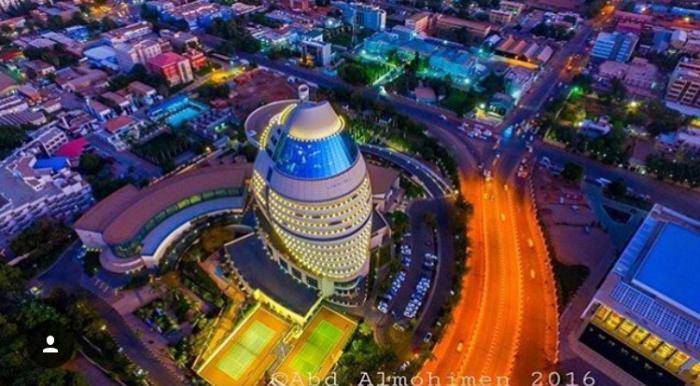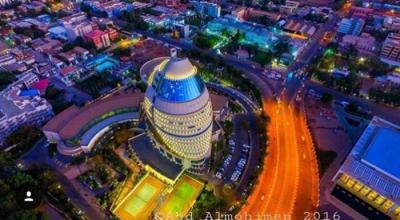Khartoum North, commonly referred to by locals as "Bahri," is a city located to the north of Khartoum, within the urban triangle that makes up the Sudanese capital, alongside Khartoum to the south and Omdurman to the west. It is smaller in area and population compared to the other two and is historically the most recent, yet it is no less important, being one of the largest industrial areas in Sudan. It serves as a vital link connecting the capital with northern Sudan by railway and with southern regions up to Kosti and South Sudan via Nile ferries.
Khartoum North represents the tranquil tourist face of the capital, distinguished from other cities in the capital by its calm and beautiful atmosphere, as well as its role in promoting Sufism through the shrines of the Sufi elders in Sudan. Khartoum North extends northward to the villages and the Sabluka Falls adjacent to the borders of the Nile River State. Among its most famous neighborhoods are Al-Sabbabi, Al-Shaabia, Halfaia Al-Muluk, Al-Azirqab, Daroshab, Al-Amalak, Hala Hamad, Hala Khogali, Al-Danagla, Shambat, Kadrio, Abu Halima, Al-Surujia, Khoglab, Hala Al-Faqi Hashim, in addition to the village of Al-Jiliyin, Al-Khililah, Al-Kabbashi, Al-Suqai, Al-Tamanat, Al-Jili, O.C., Al-Wadi Al-Abyad, and Wad Ramli.
Since the outbreak of clashes last Saturday, the neighborhoods of Khartoum North have witnessed street battles between the Sudanese army and the Rapid Support Forces, particularly as the main headquarters of the Rapid Support Forces is located there. The clashes have concentrated in areas close to the bridge connecting Khartoum and Khartoum North, which is nearest to the presidential palace, government ministries, and military headquarters, including the army command in Khartoum North. The city, one of the three that comprise the capital, is home to more than two million people and hosts Kober National Prison, the largest and most famous prison in Sudan, where ousted President Omar al-Bashir is detained, along with a headquarters for the intelligence agency.




